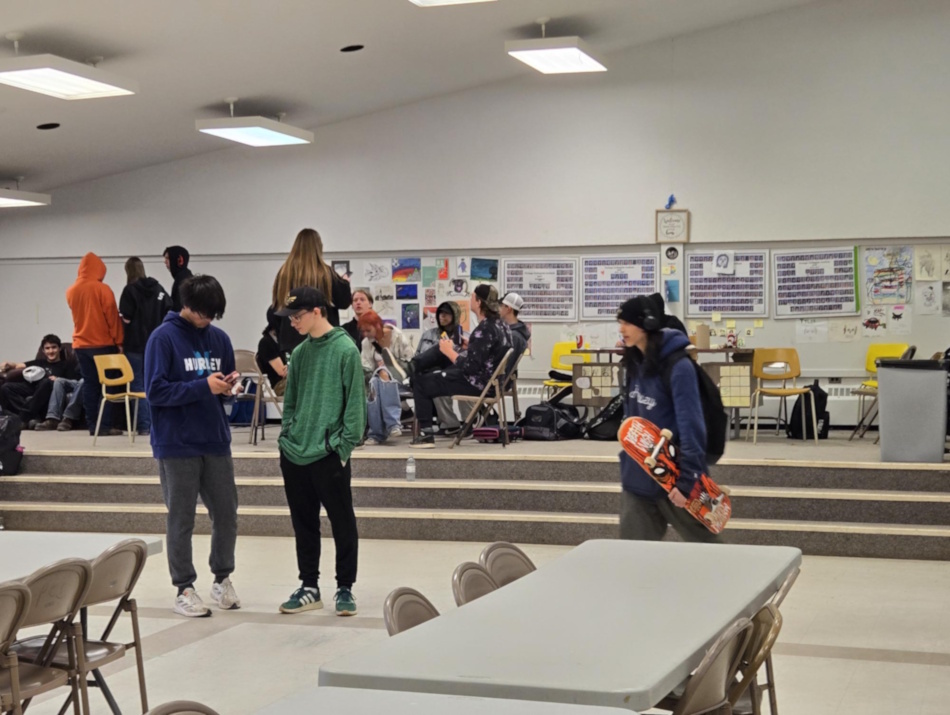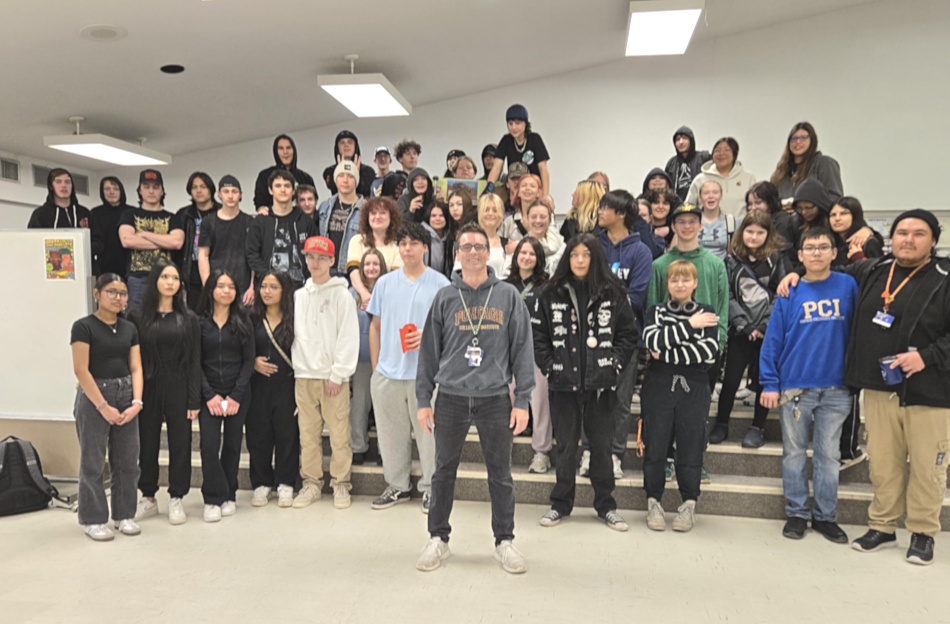At Portage Collegiate Institute (PCI), a quiet transformation is taking place—one that's changing lives, reducing conflict, and giving students a place where they can simply be themselves. At the heart of this change is Tyler Mauws, PCI’s Mental Wellness and Rehabilitation Coordinator, and the brain behind a rapidly growing wellness initiative rooted in compassion, connection, and community.
"The goal was always to create extra support in the building," said Mauws. "We're working with students who are struggling with anxiety, relationships, and issues at home. We want them to have a space where they feel safe and heard."
That space is PCI’s “multi" a multi-purpose room that has been repurposed into a wellness hub for students needing an outlet. Mauws, along with Indigenous support workers Magnus and Jen, created an environment where youth are encouraged to connect, decompress, and build each other up.
"It's a delicate balance. We let them be themselves, but we also help them stay accountable. We've built a real community in here—and with that, a noticeable decline in conflict."
The numbers speak for themselves.
"In my first year here, there was a lot of in-school conflict. This year, I can count the number of fights we have had on one hand. That's a massive shift."
Students have taken notice, too. Grade 12 student Ethan Moroz described Mauws as someone everyone trusts.
"He's like one of the teachers you can go to for anything. Everybody loves Tyler."
Classmate and Grade 12 student Jeremy Robison echoed Moroz.
"Before Tyler came, the multi was just an empty space. Now it's a place where people hang out and support each other. It's really changed the vibe of the school."
Mauws’ work is deeply personal. After battling addiction for 25 years and getting clean at age 35, he brings a lived experience that resonates with students.
"I share my story openly. If kids hear it from someone who's been through it, it opens the door for real conversation."
Now 12 years sober, Mauws is passionate about using his experience to guide youth toward healthier choices before they reach crisis points.
"These kids have become like family to me. If I can be the adult I needed at their age, then I know I’m doing something right."
And the students agree he's not just changing the atmosphere at PCI. He's changing lives.

